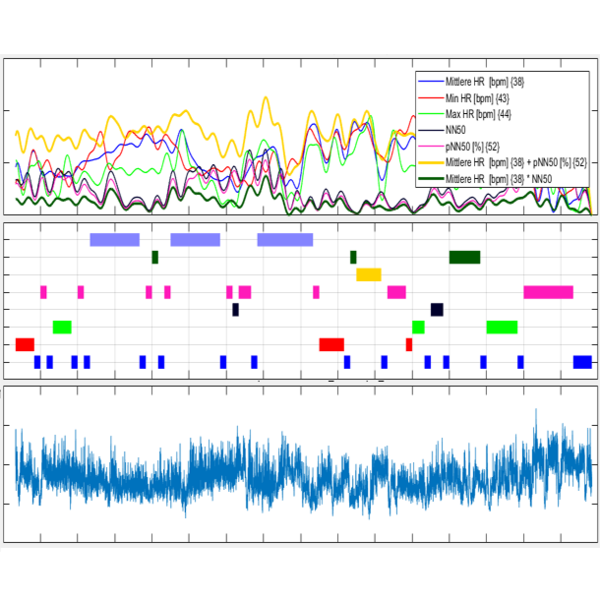Exploration of music therapeutic processes and relationships in selected areas of neurological rehabilitation

Josef Ressel Centre for establishing principles of personalised music therapy at the Krems University of Applied Sciences – research into music therapy processes and relationships in selected areas of neurological rehabilitation. The University of St. Pölten is a partner in the center and performs research in data mining and machine learning of biofeedback data.
This Josef Ressel Centre at the Krems University of Applied Sciences is dedicated to devising evidence-based scientific principles for personalised music therapy in selected areas of neurological rehabilitation. Many clinical case reports prepared in the course of the therapy process include descriptions of resonance experienced between the therapist and the patient. Such phenomena are difficult to comprehend scientifically, but are even described in accounts of music therapy treatment of patients with serious brain damage (e.g. traumatic brain injury, hypoxia, stroke, etc.). The St. Pölten University of Applied Sciences is a research partner in the Josef Ressel Centre and performs datamining and machine learning on multi-channel bio feedback data
Research team
The research team’s work is based on the belief that such perceptions of resonance are an expression of an existential, anthropologically-based need to understand and be understood. It is thought that these must have a physiological analogy and are therefore open to detailed scientific research.
Aim
The aim of this Josef Ressel Centre is to identify, using a range of scientific methods, the conditions under which such specific therapeutic encounters can be replicated – even though each one is unique – and how therapists can develop their capacity for empathy to this end.
The distinguishing feature of this Josef Ressel Centre is thecombination of various scientific and methods including videography, ECG, EEG with novel approaches from data analysis and machine learning.
Scope of Research
The primary research focus is geared towards determining the optimum window of opportunity for music-therapy stimulus for each individual patient. Patients are thought to be most receptive during this window, while at the same time therapists are at their most observant and most capable of empathy. The goal is also to determine how much time patients require to process the stimulus provided in a particular therapy session so that they are in a position to take on the next stimulus, as well as the period after which therapists are able to concentrate on the next treatment session. In the Josef Ressel Centre, reproducible procedures for recognising such a window will be developed with the help of students, using biometric processes (electrocardiograms and electroencephalograms) and video analysis. Subsequently, therapeutically significant points in the music therapy process within this window (known as therapeutic encounters) will be identified. The second research focus looks at how students and therapists can develop or enhance their empathic abilities, in order to establish resonance with patients. To begin with, methods will be developed for the biological and psychological identification and quantification of empathic reactions.
The media computing group aims at the development of machine learning and datamining approaches for the analysis of biofeedback signals like ECG and EEG. The primary goal is to analyze stress- and activity levels to predict suitable time slots for music therapy sessions where both the therapst and the patient are best ready for a successful therapy session. Furthermore, we investigate multi-channel EEG data to identify moments in time where empathic interactions between therapist and patient occurr. For this purpose, we develop algorithms that identify patterns in the data that correlate and indicate such moments.
Josef Ressel Centres
The Josef Ressel Centres carry out high-level application-driven research, which involves collaboration between outstanding researchers and innovative companies. The Christian Doppler Research Association's support for such collaboration is an example of best practice worldwide.
The Josef Ressel Centres are jointly funded by the the Federal Ministry of Digital and Economic Affairs, the Nationalstiftung für Forschung, Technologie und Entwicklung and the participating companies.
Previous project
- Krems University of Applied Sciences
